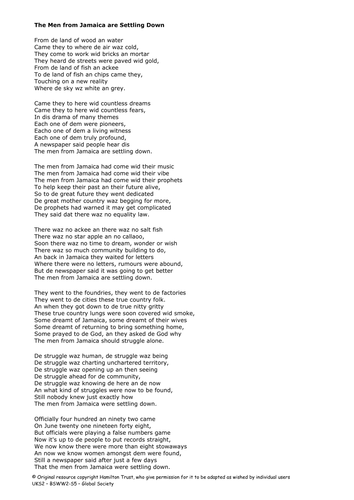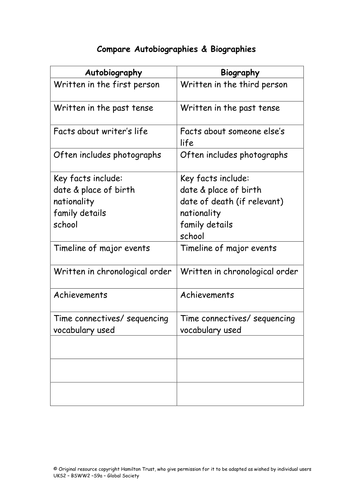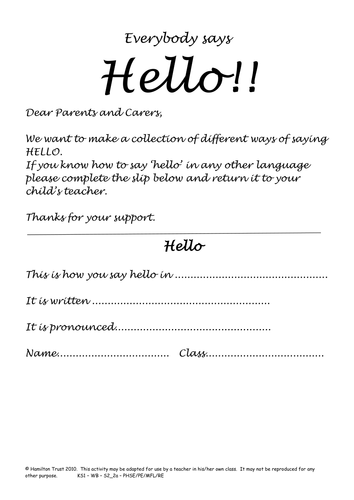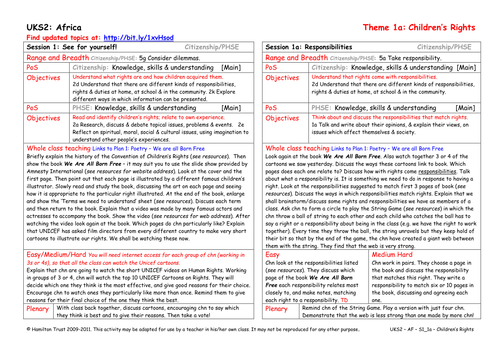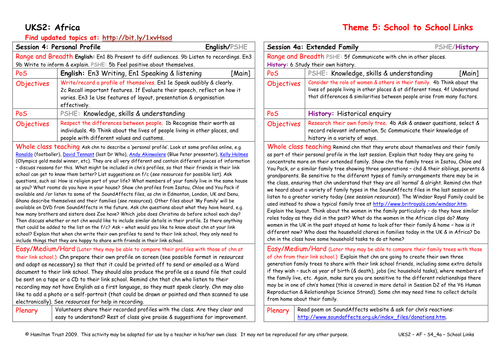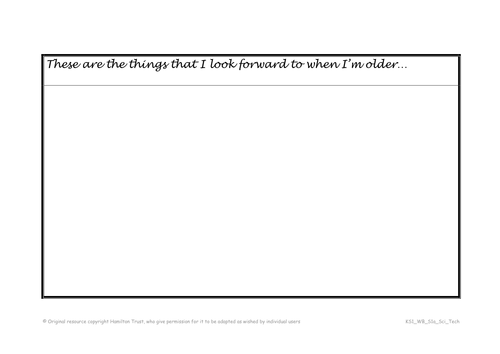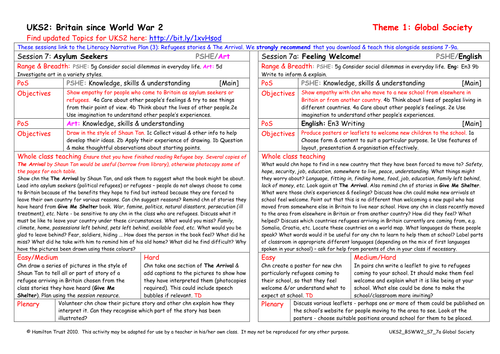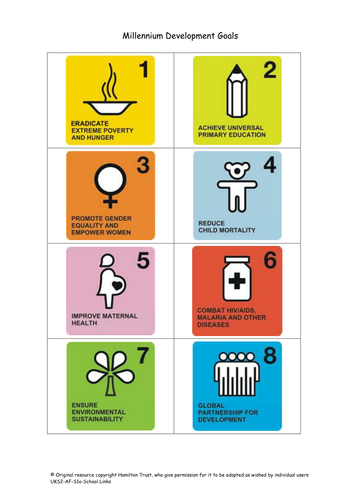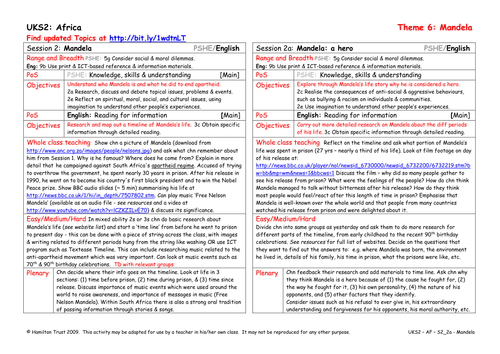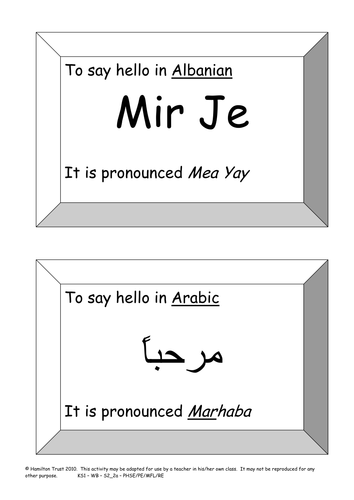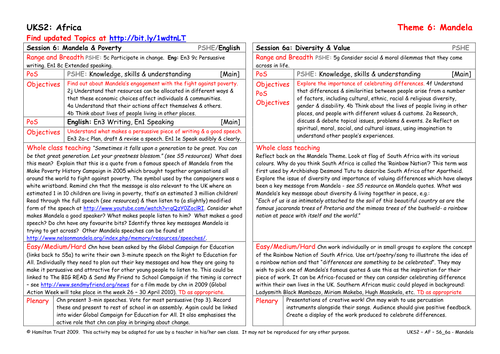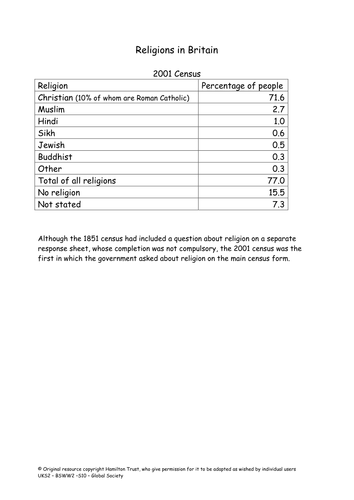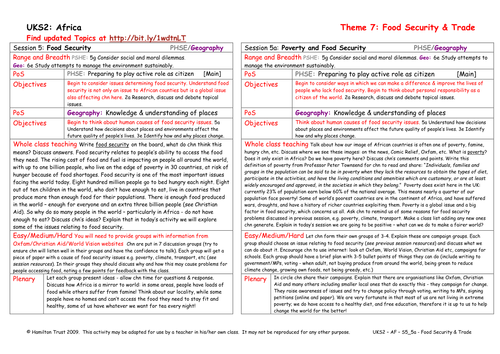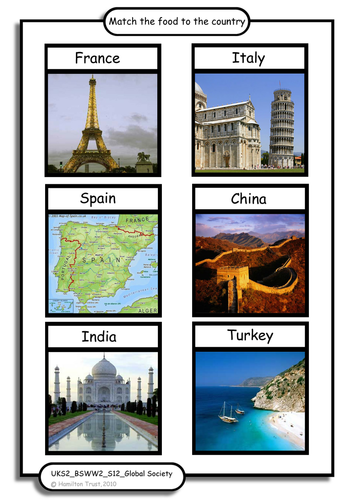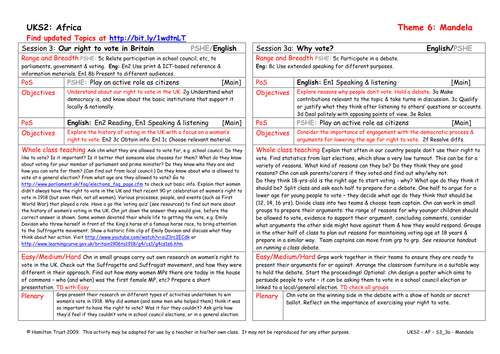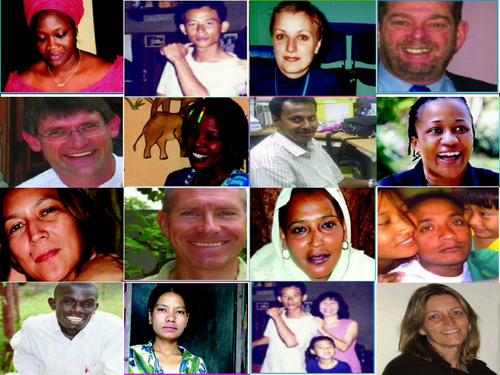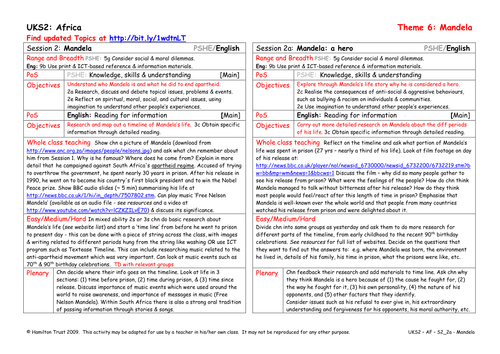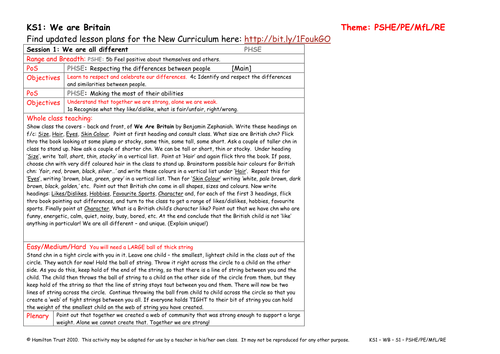
397Uploads
10045k+Views
11646k+Downloads
Citizenship

Notting Hill Carnival
Read Benjamin Zephaniah’s poem The Men from Jamaica are Settling Down. Discuss the treatment that migrants from the Caribbean received from some British people. Explain how this lead to riots and the first Notting Hill Carnival. Children design carnival costume.

Apartheid
Examine the system of apartheid through a class role play activity. Introduce Nelson Mandela and discover what children already know about him. Children reflect on their own feelings during the role play. Start reading Journey to Jo’burg. Suitable for years 5 and 6.

Biographies
Discuss biographies and autobiographies and list the features of each showing diffs. Chn write a fact file or biography of one of well-known immigrants or descendants of immigrants identified in S10. Make class books for other children to read in school library.

Journey To Jo'burg
Explore in more detail the history of apartheid in South Africa, with links to Mandela. Look at the signs that were displayed.
Pick out examples of effects of apartheid on non-whites in Journey to Jo’burg, and act out short scenes that show these effects.
Suitable for years 5 and 6.

We All Say Hello
Play circle games to practice greeting each other confidently. How many ways do children know to say hello in a different language? Learn 3 new ways.

Responsibilities
Discuss how the cartoons seen yesterday link to the book We Are All Born Free. Discuss how with rights come responsibilities and what responsibility means. Play the String Game using rights and responsibilities and discover how strong a net can be made.
Suitable for years 5 and 6.

Personal Profile
Use celebrity profiles to decide what children might include in their personal profile to introduce themselves to their link school friends. Listen to Ghanaian children describing themselves and their families. Prepare own profiles on screen or as recordings.

Who wants to grow up?
Children continue to explore how our bodies and minds change as we get older and how this might affect us in old age. They go on to explore their feelings and frustrations about wanting to be older.

Asylum Seekers
Explain that some people come to Britain as asylum seekers or refugees to escape from problems in their home country. Use The Arrival by Shaun Tan to empathise with people coming to Britain. Children draw part of one of short stories from Give me Shelter.

Needs and Wants
Look (again) at the list of UN Children’s Rights. Discuss whether or not children feel they have all their rights and explain how various people and organisations can help achieve them if not. Learn some words and phrases in link school’s language (or Swahili).
Suitable for years 5 and 6.

Mandela: A Hero
Look in more detail at Mandela’s life and in particular share with children a film of his release from prison. Reflect on reasons why Mandela is considered a hero by so many people all over the world. Add further details to the timeline.
Suitable for years 5 and 6.

Learning new ways to say Hello
Learn another circle game and then find out lots of different ways to say hello. Practice saying hello making good eye contact. Work as part of a group to make a ‘hello’ flag. Teach the new hello to the rest of the class.

Diversity and Value
Through artwork/ poetry/song the significance of the ‘Rainbow nation’, and of valuing diversity, is celebrated.
Suitable for years 5 and 6.

Multi-Faith Britain
One of the important changes in British society since WW2 has been the rise in numbers of people with different religious beliefs. Christianity remains the main religion. Investigate the main religions that are now practised in Britain and create display.

Food Security
Children begin to consider issues determining food security. This session helps them to understand that food security is not only an issue for African counties but is a global issue also affecting us here. Children work in groups to discuss different causes.

Merging Cultures
Celebrate the diversity of British people! The cultures of immigrants from many countries who have come to Britain since WW2 have been merged with the pre-war British culture to provide a great variety of foods, music, clothes and dance. Explore and enjoy!

Our right to vote in Britain
Examine voting in the UK, recent elections, and why we vote. Children use a quiz to explore the history of voting in the UK and focus on women’s right to vote, and then do further research. Watch film footage of Emily Davison.
Suitable for years 5 and 6.

HIV: Kishe’s Story
Return to MDG 6, and focus on HIV and AIDS. Children read a story of a young orphan, Kishe, and reflect on her life story and the wider impact of HIV across generations.
Suitable for years 5 and 6.

Mandela
Link apartheid to Mandela. Who he is, where he comes from, why he is so famous, right up to the present day. Use internet and books to find information about Mandela’s life and start to develop a time line as a useful tool to refer to throughout the theme.
Suitable for years 5 and 6.

We are all different
Children explore the idea stemming from ‘We Are Britain’ that there is no one image or character a of British person. We come in all shapes and sizes, colours and creeds. A splendid activity makes the point that united we make strong communities.

